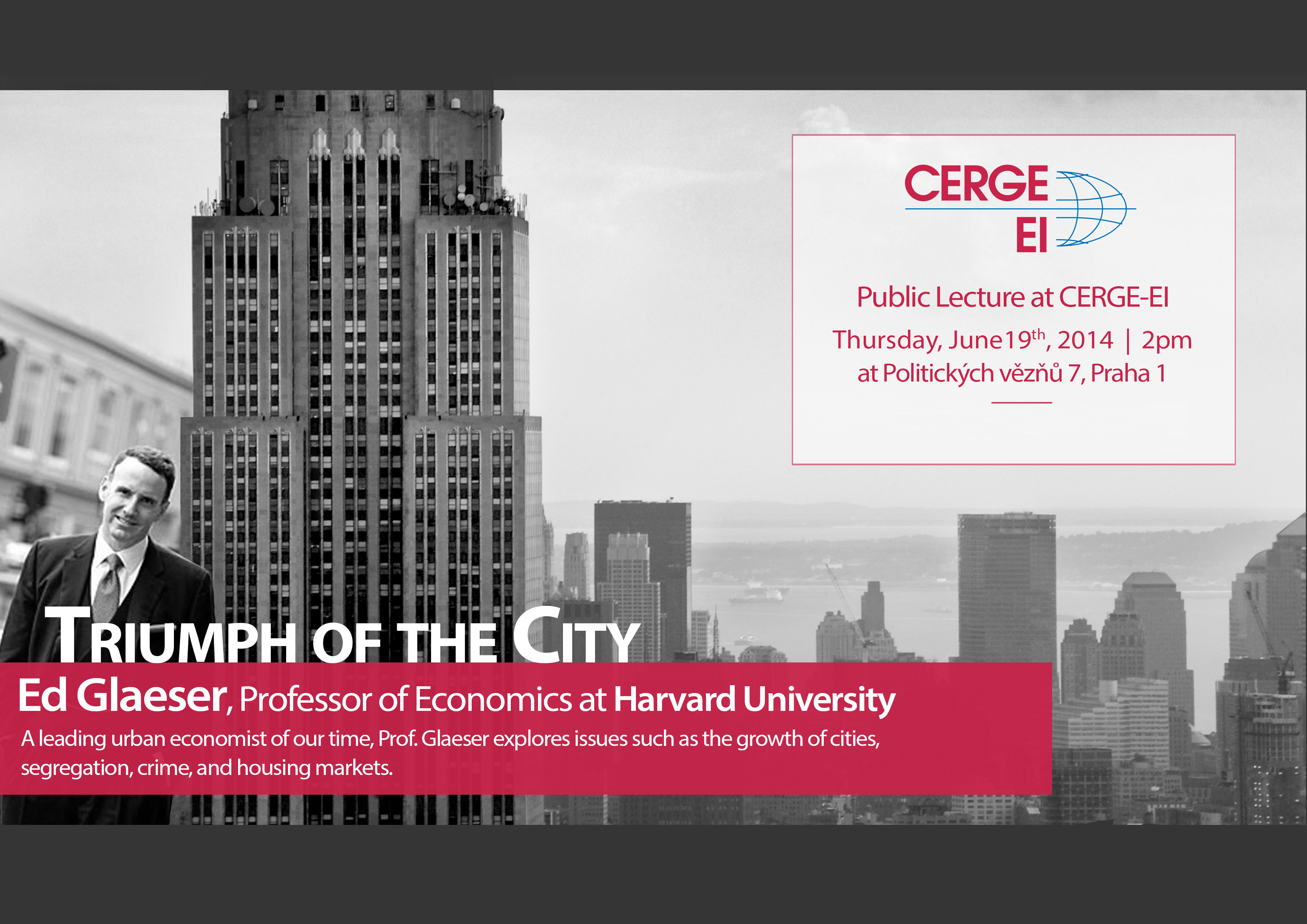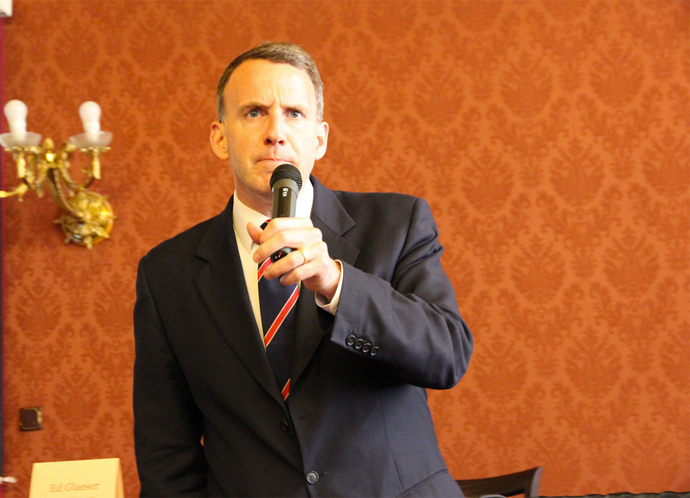httpv://www.youtube.com/watch?v=frEF0Vg6I-0
“Cities are magical,” declared Ed Glaeser to open his public lecture at CERGE-EI. “They are an excellent source of research and policy debate.” Professor Glaeser is an economist at Harvard and the author of the book Triumph of the City. His passion for cities, however, is not limited to their fertile ground for research. Glaeser argues that “cities magnify humanity’s strengths.” They spur innovation by facilitating human interaction, they attract talent and sharpen it through competition, they encourage entrepreneurship, and they promote social and economic mobility.
More than half of humanity now lives in cities, and Ed Glaeser sees this as a wonderful achievement. He also thinks that cities should be denser and cheaper; the more people, the better. The data agrees with him, as high earners happen to live together both in the USA and Europe. He backs up his argument with statistical evidence that was strong enough to refute Mahatma Gandhi’s famous quote “the future of India is in its villages not in its cities”.
Glaeser took us on a tour of urban economics, and how urban density contributed to the birth of publishing in New York, skyscrapers in Chicago, the auto industry in Detroit and, more recently, the information technology hub of Silicon Valley. He also reminded us of the time when it really looked like cities were dying. “It really seemed possible that all of America’s older cities would revert back to some planet of apes like wilderness,” he recollects, referring to New York on the brink of bankruptcy in the 1970s.
All of that decline was because it looked like cities had lost their original economic reason for being: Transportation. In the early days of the United States, it cost as much to ship 30 miles over land as to ship across the Atlantic. So cities emerged as nodes on a transportation system. As transportation became cheap, industry fled. It started to look like cities were doomed. The other real problem, was urban sprawl. “Each new highway that cut into an urban core reduced the city’s population by about 18% relative to the rest of the area.” The federal government pursued a strategy that ignored the real heart of a city: the people. As Professor Glaesrer reminded us, it’s not just Infrastructure that’s needed. A picture of the Detroit “people mover” flyover gliding over empty streets supports his argument. The variable that explains which cities came back, according to Glaeser, is human capital: the schools and average education level. It’s the well-educated people of Boston, Minneapolis and New York who have continuously found new sources of prosperity when old ones ran out.
Prof. Glaeser also took time to mention what he called the “demons of density.” One such evil is urban poverty in the developing world. Cities attract the poor with the promise of a better life than what the countryside can offer. But while the city provides opportunities for the urban poor, it also has to grapple with the pitfalls of poverty, including public health and crime. There are other downsides to cities. Some of these problems need more than just more engineering. “If you build cars, people will drive. You can’t engineer out of that, you need to be like Singapore, which charges people for congestion.” He continuously reminded the audience that the role of the state is not to tell people what to do, but to provide the right incentives and taxes so that people pay the full social cost of their actions.
Professor Glaeser’s CERGE-EI lecture left the audience hungry for more. Through his fascinating speech, he revealed how the relatively young field of urban economics is a rich area for further exploration. As urban spaces become a more important part of the human experience, the science of understanding and improving them will become increasingly essential. Professor Glaeser’s brief lecture served as a window into this fascinating world of research and inspired the audience to learn more. On behalf of the CERGE-EI community, we would like to thank him for his visit!

